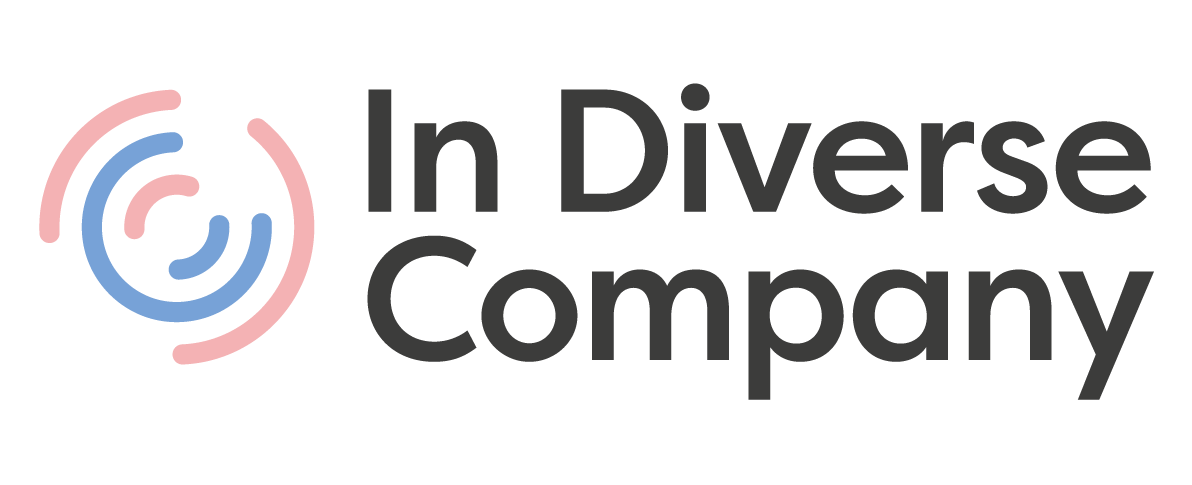By Arifa Syed, Senior Consultant
In Diverse Company is more than just an ED&I consultancy, we envisage ourselves to be a catalyst for sustainable and meaningful change. Operating at the cusp of psychology, research, and behavioural science, we offer data-driven solutions to organisations in supporting them to become more inclusive and equitable.
Within this, one of our core focuses is gender equity. Although gender equity has been a significant topic of debate, activism, and effort for decades for both academics and practitioners alike, it is also a subject that can often be misunderstood and limited to mere statistics.
At In Diverse Company, we understand gender equity as a complex, nuanced, and multi-dimensional issue that has a profound impact on an organisation’s health as well as performance. At the base of these interventions, we approach gender equity through a gender transformative lens that mobilises programmes, interventions, methodologies, and tools that challenge and transform the rigid gender roles, norms, and power imbalances within organisations. This approach is designed to go beyond the surface-level changes and address the underlying structural and systemic factors that perpetuate gender inequity.
Let’s have a look at how we view gender equity at In Diverse Company:
1. Moving Beyond Representation
It is important to understand that gender equity is not merely limited to the ‘number of women’ in an organisation. In fact, achieving gender equity is a complex challenge that extends beyond representation and crucially incorporates equal access to wages, leadership roles, and decision-making opportunities for those who identify as women. This requires a combination of cultural and systemic interventions that work together in synergy to produce the desired impact. At In Diverse Company, we develop a combination of interconnected interventions that address these facets. These range from mentorship programmes aimed at preparing women for leadership roles to conducting wage audits to ensure pay equity, and developing decision-making frameworks that are inclusive by design.
2. Mainstreaming the Benefits of Gender Equity
The benefits of gender equity extend beyond social and ethical considerations – although, this remains a cornerstone premise of our interventions. Studies have highlighted that gender equity positively impacts employee well-being, particularly among women. This is consistent with our own data at In Diverse Company, where more inclusive organisations correlate with increased employee engagement and reduced turnover rates. Additionally, gender diversity and equity are seen to contribute to positive organisational performance. Research conducted by Simionescu and colleagues (2021) identified the positive influence of women on corporate boards in the S&P 500 companies on the organisations’ performance. Thus, creating momentum and buy-in for strengthening gender equity by providing evidence of the overall benefits reaped by organisations in central.
3. The Intersectionality Factor
At In Diverse Company, we always approach equity and inclusion with an intersectional lens. We recognise and appreciate that gender equity does not exist in a vacuum and is enmeshed with other forms of diversity such as race, sexuality, and disability, for example. Research suggests that a ‘critical mass’ of about 30% of women needs to be reached across all levels of organisations for the positive impacts of gender diversity to manifest (Joecks et al, 2013). However, moving gender equity beyond representation and surface level requires us to ensure that gender equity initiatives are inclusive for all women, including those who belong to other marginalised groups. Bringing an intersectional lens to gender equity is necessary in approaching the challenges from a holistic perspective and pushing the efforts beyond the surface level.
4. Policy as Catalyst for Change
For us, effective policies are the backbone of any successful gender equity initiative. Alongside developing inclusive policies, this also involves setting up effective and inclusive communication as well as organisational reflexivity to ensure that policies targeted for gender equity are responsive to the specific needs of women. At In Diverse Company, we not only help organisations draft such policies but also ensure that they are evidence-based, adequately translatable into practice, and driven by the support and buy-in of leadership. Our experience highlights the importance of these factors working in seamless combination to responsibly deliver change and positively impact those who have been historically marginalised.
Achieving gender equity is a complex and multi-faceted challenge that requires a nuanced and data-driven approach. However, it is not an impossible task. By mobilising interventions that are backed by both organisational and academic research, we can set new standards of what gender equity should look like and deliver in the modern workplace.
References:
Simionescu et al (2021): ‘Does board gender diversity affect firm performance? Empirical evidence from S&P’s 500 information technology sector’ in ‘Financial Innovation’
UNFPA (2023): Gender transformative approaches to achieve gender equality and sexual and reproductive health rights.
Centre for Creative Leadership (2022): Making gender equity in the workplace a reality.
Joecks et al (2013): ‘Gender diversity in the boardroom and firm performance: What exactly constitutes a ‘critical mass’?’ in ‘Journal of Business Ethics’






